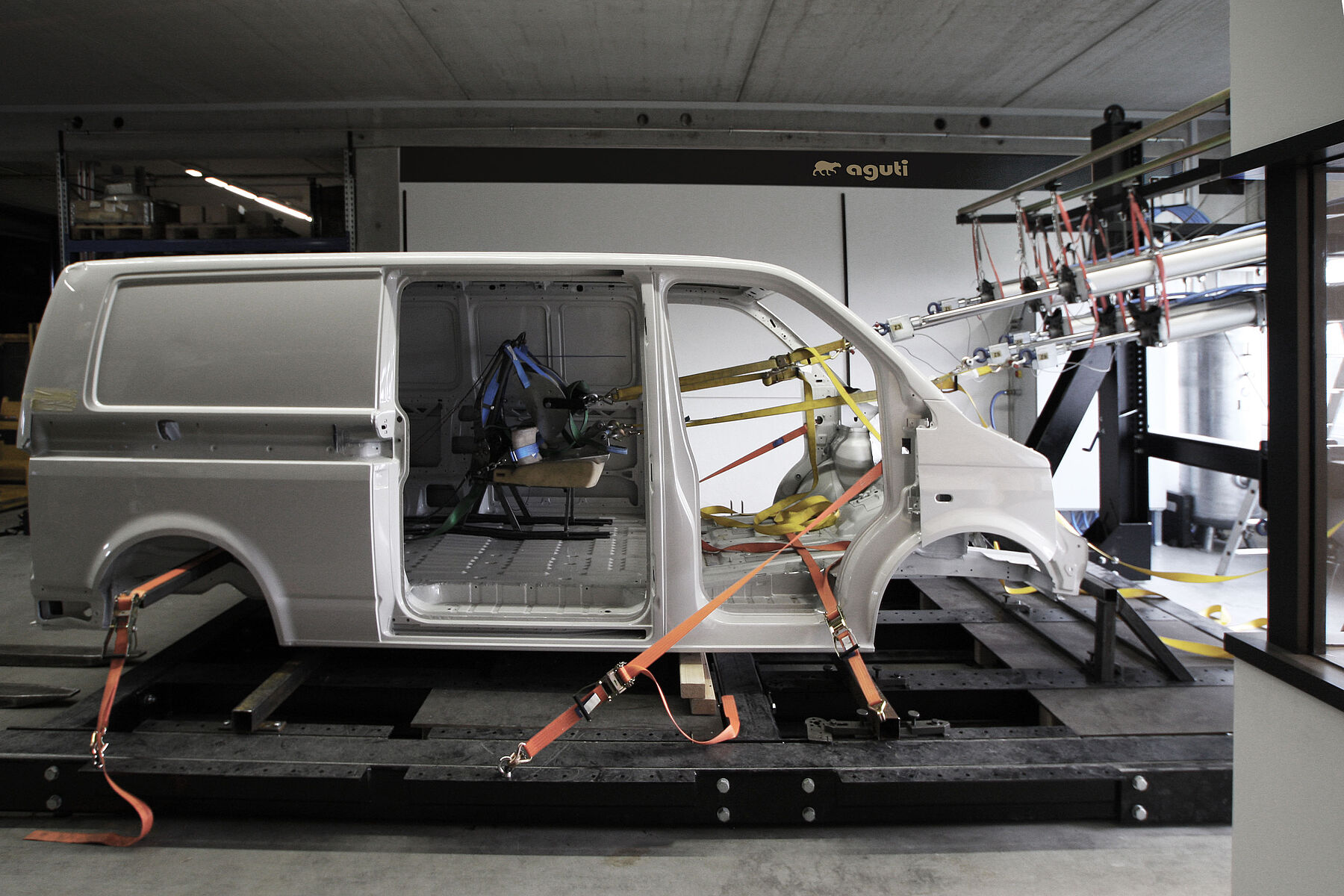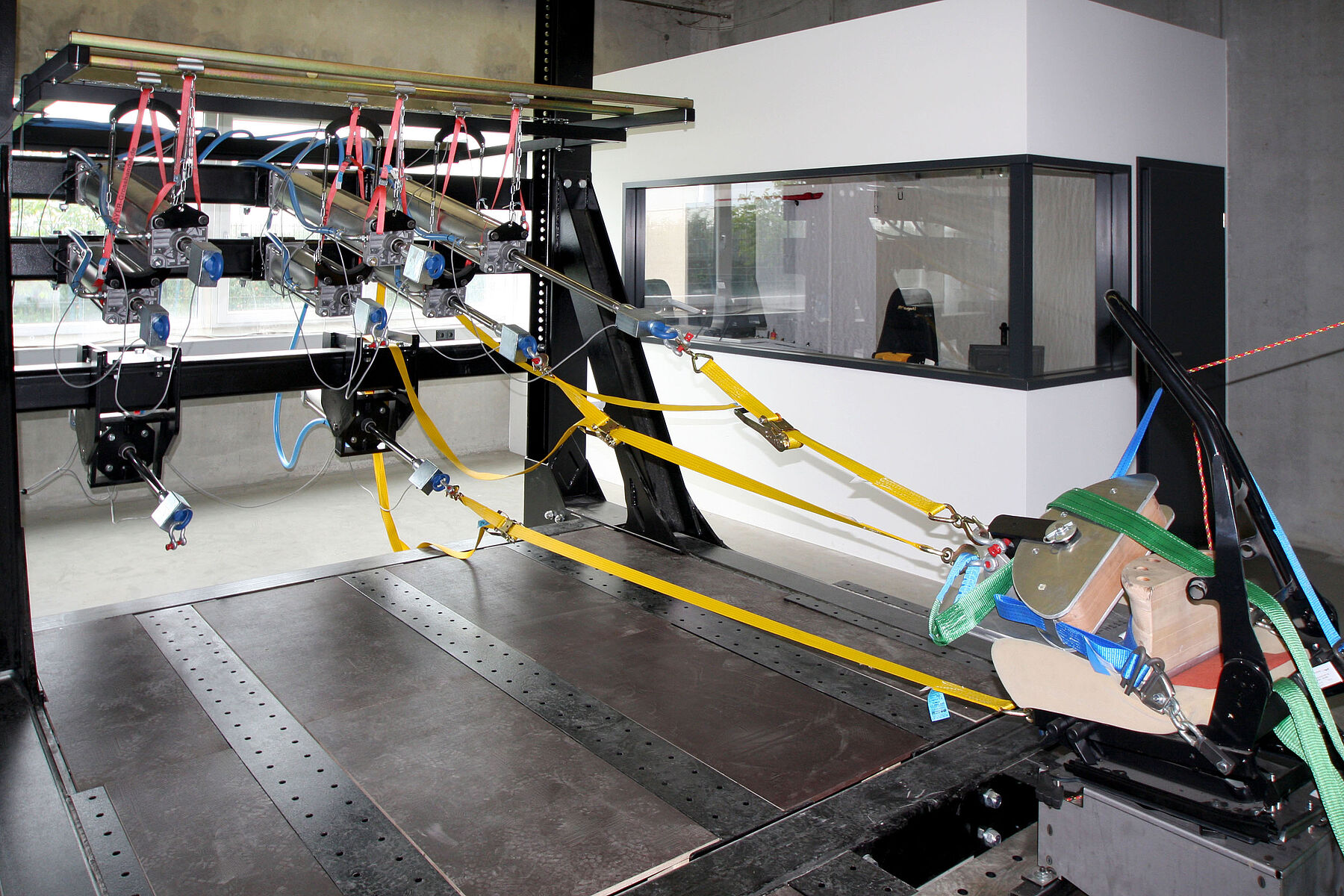Aguti, the motorhome and camper van seating specialist, invested in its future in 2012 when it installed a dedicated static tensile testing area within its modern facility in Langenargen.
Like most independent suppliers, Aguti previously used external facilities to validate the safety of its products and obtain TÜV certification. That external process added cost and created delays to the introduction of new seats or benches.
Delivering highly-engineered products and reacting quickly to customer needs are part of Aguti’s DNA, giving it an edge in the fast-paced motorhome and camper van industry. That competitive advantage is enhanced by in-house tensile testing, which shortens development cycles and reduces reaction time for customer requests.
TÜV certification can be directly carried out on site, while regular Conformity of Production (CoP) testing is also used to maintain Aguti’s exceptionally high standards of build quality.
The benefits of the tensile testing centre have been emphasised by the growth in popularity of electric vehicles within the motorhome industry. To offset the weight of batteries and maximise range, weight saving takes on a new priority, and solutions can be tested in-house at Aguti first before proceeding to product development.
Aguti’s test system can generate a total tensile force of 160 kN via eight pneumatic cylinders, which simulate the forces experienced in an impact to on seat systems and, belt frames, including their chassis mountings. Individual seat frames are attached to a rigid plate or complete vehicle chassis can be fixed to a solid base plate to achieve accurate, representative testing.
By subjecting components to such forces, Aguti engineers can determine how they absorb energy in the event of an impact, confirming that each individual product meets stringent safety criteria. Documentation is carried out based on the latest measuring methods and by video analysis.


